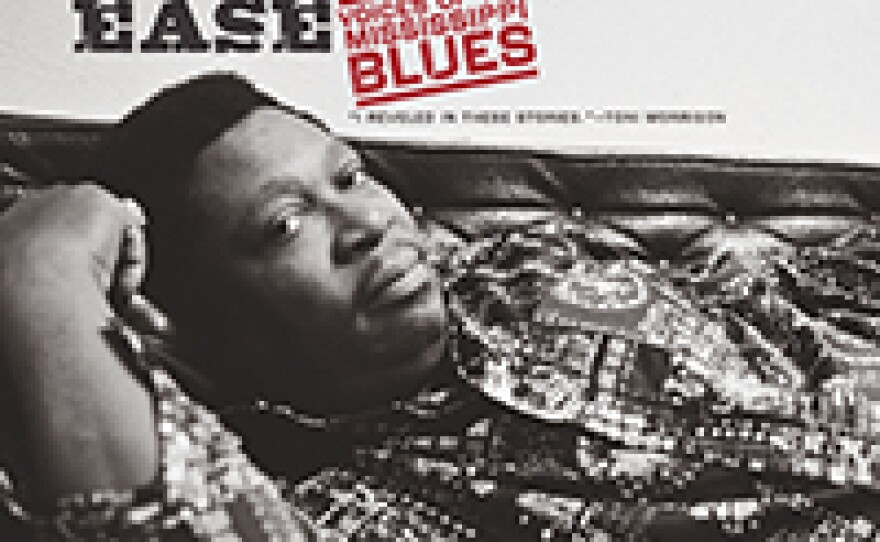B.B. King
In '49, I was playing in a place called Twist, Arkansas. It's about forty-five miles northwest of Memphis, Tennessee. We had a good time there every Friday and Saturday night. In the wintertime, we had a big container — looked like a garbage pail — and we would sit it in the middle of the floor. They would fill it about half full with kerosene — down home they call it coal oil — and they would light this fuel. This was all they had for heat. The people that was used to coming to this place would dance around this big container. You could get about seventy-five or eighty people in there at once, but some nights we would have two, three hundred people. We had what we called the "coming and going crowd." People would come in, get hot dancing, and walk out. Then others would come in.
This particular night, two guys started fighting, and one of them knocked the other one over on this container of kerosene. When he hit it, it spilled all over the floor. Everybody started trying to put it out, and that made it burn more. Everybody started making for the front door when they figured they couldn't put it out, including B. B. King. But when I got on the outside, I remembered that I'd left my guitar inside and I went back for it. Guys told me not to do it. The building started to collapse around me, and I almost lost my life trying to save my guitar. The next day we found that two men got trapped in rooms above the dance hall and burned to death. We also found that these same two men were fighting about a lady, and we learned that the lady's name was Lucille. I never did meet her, but I named my guitar Lucille to remind me never to do a silly thing like that again.
Instruments weren't very plentiful in the area where I grew up. We felt a need for music, so we would put up a broom wire. Usually we would nail it up on the back porch. In case you're not familiar, brooms had a kind of straight wire wrapped around the straw that would keep the broom together. We would find an old broom — or a new one, if we could get it without anybody catching us — and take that wire off of it. We would nail it on a board or on the back porch to one of those big, thick columns, put the wire around the two nails — one on this end and one on the other — and wrap it tight. Then we would take a couple of bricks and put one under one side and one under the other, and stretch the wire and make it tighter. We would keep pushing the brick — stretching the wire, making it tight — until it sounded like one string on a guitar. But it was only one. By putting your hand on it in different places, you actually could change the sound of it. Some guys did it a little different than that. They would use a piece of steel like they do on a steel guitar with a bottleneck.
We used to take rubber strips from an inner tube that was inside your tire. This was very flexible rubber. We would cut it up in small strips and put them on a stick. You could tighten that, and we would take small pieces of rock or a piece of wood and put that on as a bridge — same thing we used those bricks for on the wire on the wall. Sometimes we would put two or three of these, or four or five, and sometimes six — like a guitar on a board — and then we would go and cut a stick. We would saw this like you would a violin. It made a very nice sound, and we would fret it with our hands as if it were a violin. If you put a little water on it and made it a little slick on the stick, you really could get a sound out of it. People did that.
There were other ways of making musical instruments. Guys would take a couple of spoons, and they would beat them together. We would also take a comb, a big heavy comb, and put thin paper against it. You could blow that. You made music that way also.
Usually, in the average home, there was an old guitar with strings broken, and in order to play this guitar we would make wooden clamps. We would put the wooden clamp on down below, where we had the string tied, and that would make the string sound good.
If you were living like I did, a harmonica was about all you could afford. There was a big company that you could order things from — Sears Roebuck. One fellow that had gotten rich was able to get him a guitar. When I say rich, he had been to the army and been mustered out and paid. Later on, he decided that he wanted to sell his guitar, and he was going to sell it for fifteen dollars. The family I was working for was pretty nice about paying me for farmwork, so I paid five dollars the first month, five dollars the second month, and five dollars the third. To me, it was the greatest thing that had ever been created because it was my guitar.
From Give My Poor Heart Ease: Voices of the Mississippi Blues by William Ferris. Copyright 2009 by William Ferris. Used by permission of the University of North Carolina Press. www.givemypoorheartease.com
Copyright 2023 NPR. To see more, visit https://www.npr.org. 9(MDM3NjYwMjA5MDE1MjA1MzQ1NDk1N2ZmZQ004))


